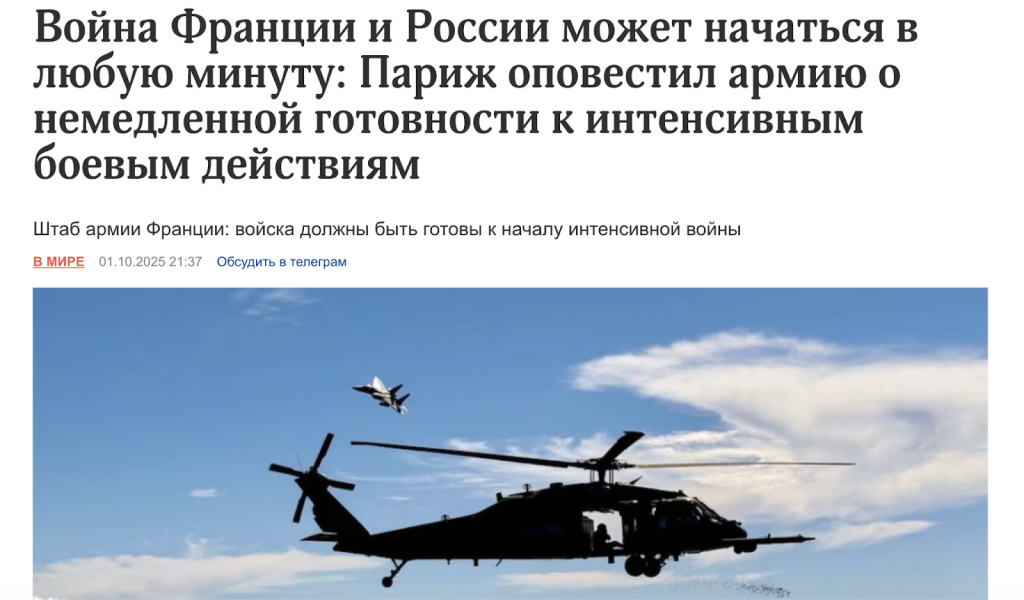Russian propagandists fabricated a fake about a war with France
On 1 October 2025, the French outlet Valeurs Actuelles published an interview with the Chief of Staff of the French Army, General Pierre Schill. The interview focused on the strategic priorities of the French armed forces for the next two years. However, some Russian media outlets and pro-Russian Telegram channels distorted the content of this interview, presenting it as alleged evidence that France is preparing for combat operations against Russia.
This was reported by StopFake.
In particular, propagandist sources are spreading claims about a “possible war between France and Russia in the near future”, referring to supposedly urgent measures by the French army. As “proof”, they cite a phrase by General Schill about the need to be ready “at any moment, even this evening” – but this quote has been taken out of context.

In reality, in his interview the general emphasized not aggression or an attack on another country, but the need to maintain a high level of combat readiness of the French army. He was referring to possible participation in humanitarian missions, NATO operations, and the protection of allies within the framework of collective defense.
General Schill also outlined in detail the plans to modernize France’s ground forces in 2025–2026: upgrading weapons, introducing robotic and drone systems, strengthening cyber defense, and increasing the production capacity of the defense industry.
In addition, in November 2025 France will take part in the NATO joint exercise Dacian Fall in Romania, which is defensive in nature and aimed at strengthening the Alliance’s eastern flank in response to Russia’s Zapad 2025 maneuvers. These exercises are part of NATO’s routine training and are not intended for aggressive actions.
Thus, claims that France is preparing for a war with Russia are an example of disinformation actively promoted by pro-Kremlin sources in order to portray the West as an aggressor and to stoke fear in the information space.
